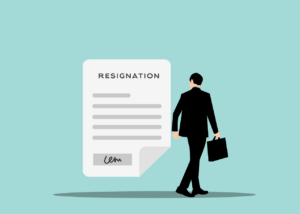
When applying for a job, you likely consider the salary and other material benefits, opportunities for professional development and career growth, and how comfortable you will be working for the company. One circumstance that can hinder the productive work of some applicants is the presence of a strict dress code.
The question of adhering to a dress code is a personal matter. Some individuals feel no discomfort in constantly wearing formal attire, while others are willing to tolerate it as a necessary aspect of working in reputable companies. However, there are also many people who naturally oppose strict dress code rules. For those individuals, an official dress code is a requirement they will never be able to accept. If you are one of these people, this article is for you.
What is the purpose of a dress code?
A dress code is a form of dress adopted by a company. In itself, the concept of dress code does not denote strict rules of dress; its presence only means that the company has certain requirements for the form of dress. These rules can vary, but in office work or work involving communication with clients, the dress code typically implies a formal style of dress.
A dress code is enforced for two primary reasons:
1. To ensure a certain image of the company in the eyes of customers.
2. To create a working mood, promote team building, and eliminate discussions about how individuals are dressed.
What professions require a dress code?
A dress code is usually required in two cases:
1. In reputable companies, such as government agencies, state corporations, banks, financial institutions, large companies, international companies, political organizations, etc.
In these organizations, the dress code is typically mandatory for all employees or a majority of them.
2. In positions that imply a certain status or are related to working with clients.
Thus, an official dress code is usually applied for the following professions and positions:
* Business consultants
* Bank employees
* Officials
* Customer service managers (especially in b2b)
* Lawyers
* Press secretaries
* Managers of various levels in a wide variety of companies
What should you do if you cannot follow strict rules regarding the form of dress and want to work in serious companies?
Here are six tips for those who cannot follow the official dress code:
1. Find out in advance what form of dress is accepted in the company.
This is necessary to avoid the situation where you get a job and only then realize that the company has a strict dress code, which cannot be bypassed.
2. Look for a job in companies where there is no strict dress code.
For example, dress codes are typically not applied in business areas related to creativity or in small companies (of course, there are exceptions).
3. Change into office clothes at work (if possible).
When a company you like has an official dress code, one option is to change clothes directly at the workplace – at the beginning of the workday and at the end of it. However, such an opportunity is not always available, so you need to ask in advance.
4. Become a very valuable employee.
Another option to solve the problem with the dress code is to become a very valuable specialist for whome the management will have to make an exception.
This option is more complicated and may not work everywhere, but it is also a viable solution. Anyway, it is very good to be a highly qualified professional. And even if your current employer does not appreciate you, their competitors certainly will.
5. Work as a freelancer.
One of the advantages of working as a freelancer is that you work from home and therefore in clothes that you are comfortable in. So, this is also one of the options to solve the dress code issue.
Remote work is available for such professions as copywriter, journalist, social media specialist (like Facebook page administrator), marketer, translator, designer, and others.
6. Work in a profession that does not involve a dress code.
If you want to avoid a situation where you have to comply with a strict dress code, you should choose a profession that definitely does not imply a formal dress code. For example, it can be one of the creative professions.
And the last note.
If the company in which you work or want to work is truly great and pays well, maybe it is better to give in and put up with the need to follow the official dress code?
Well, it’s up to you.









